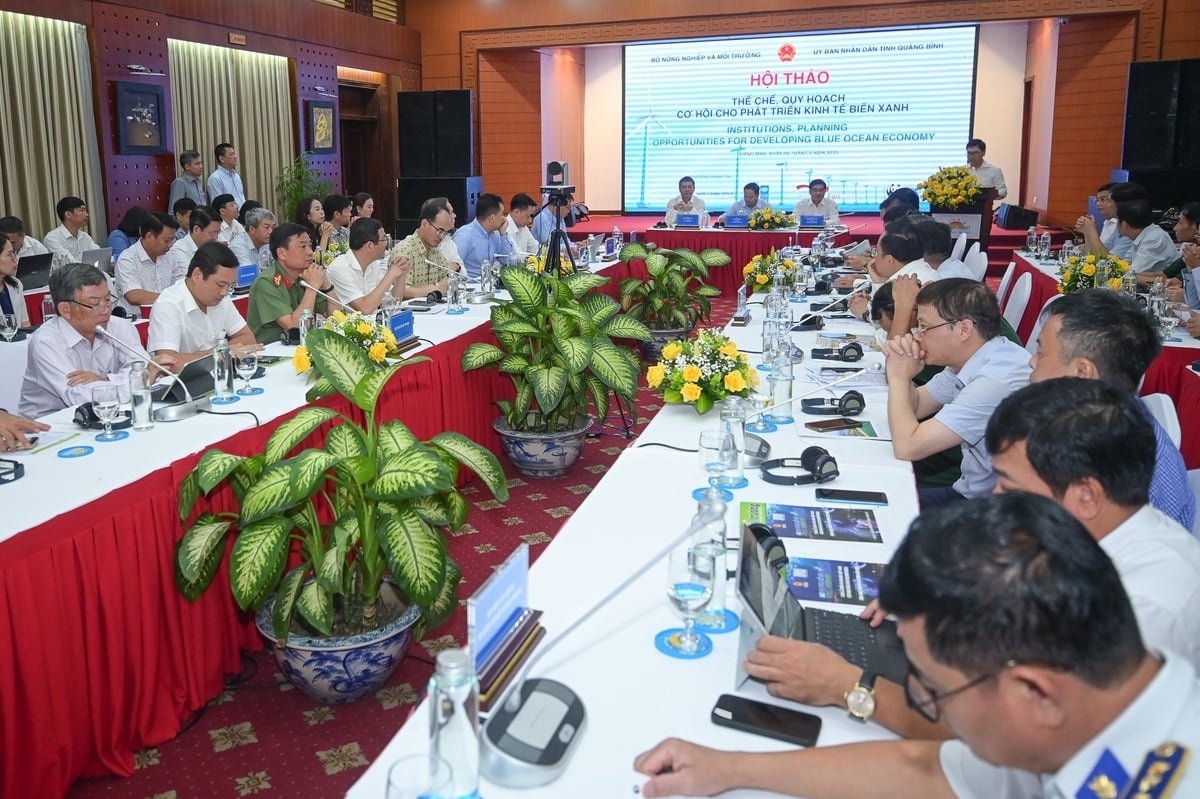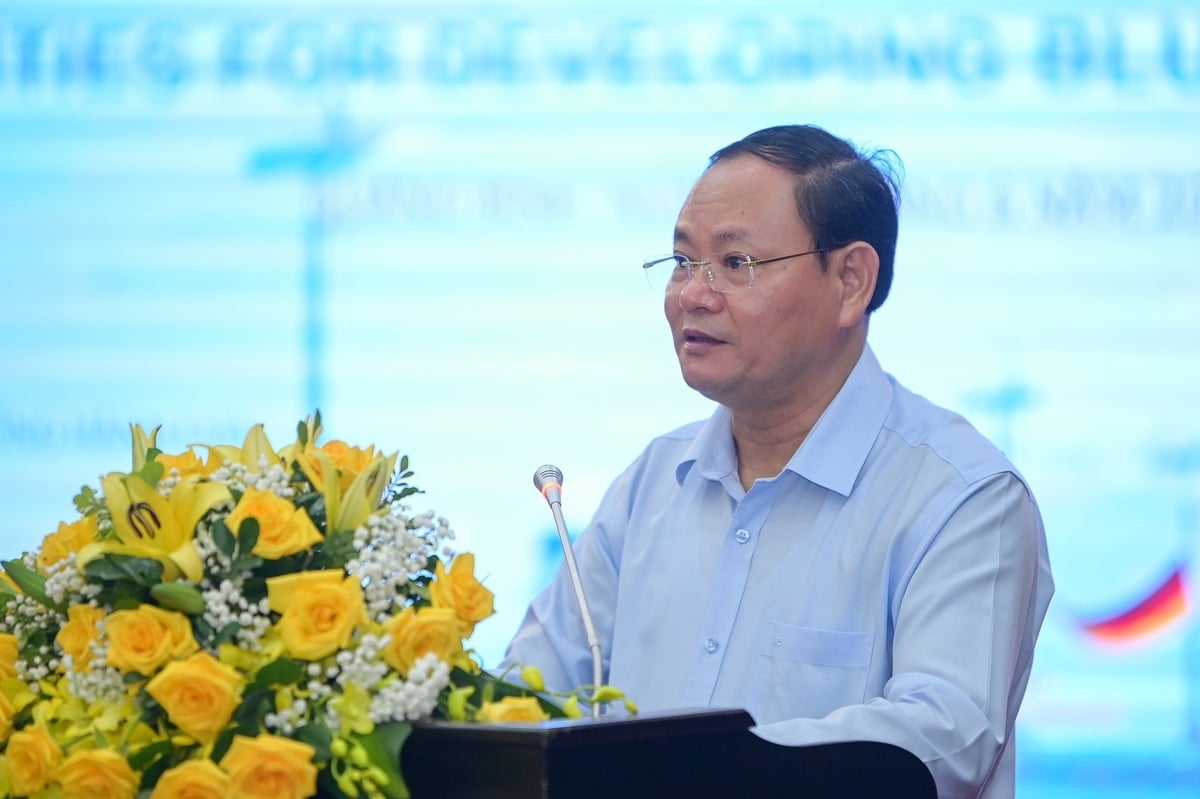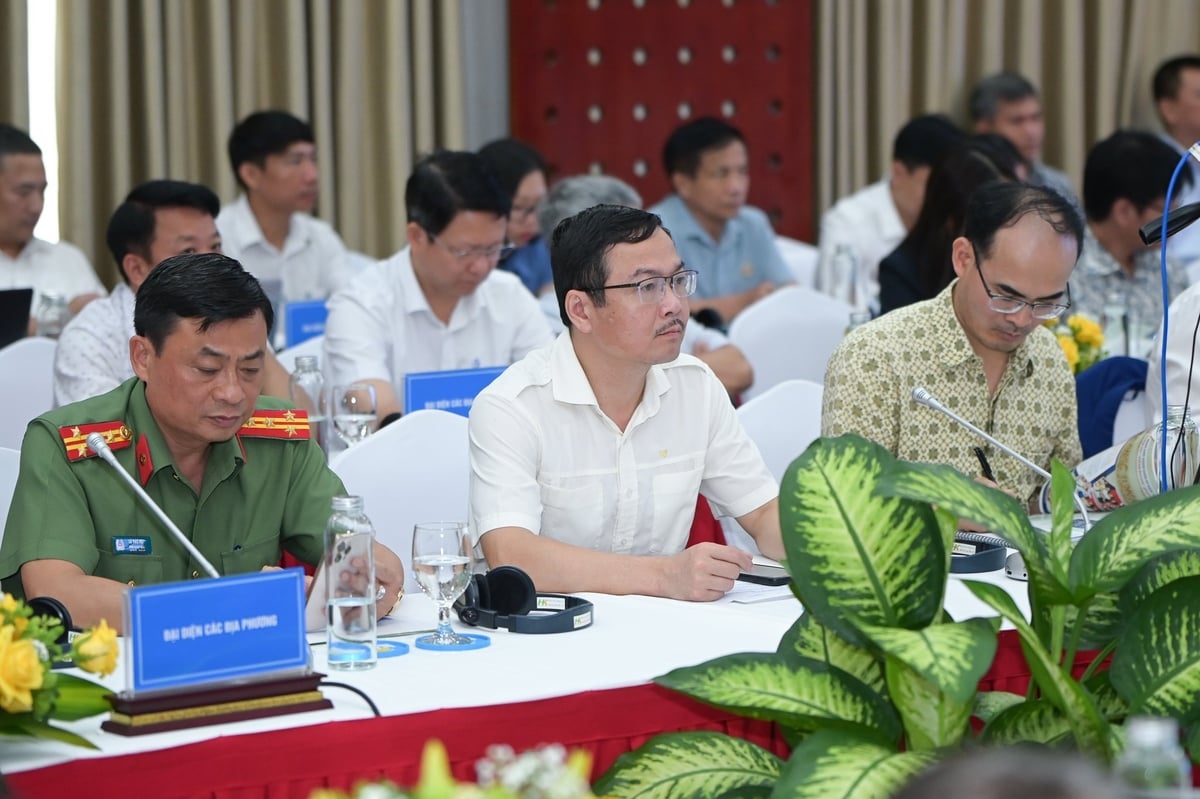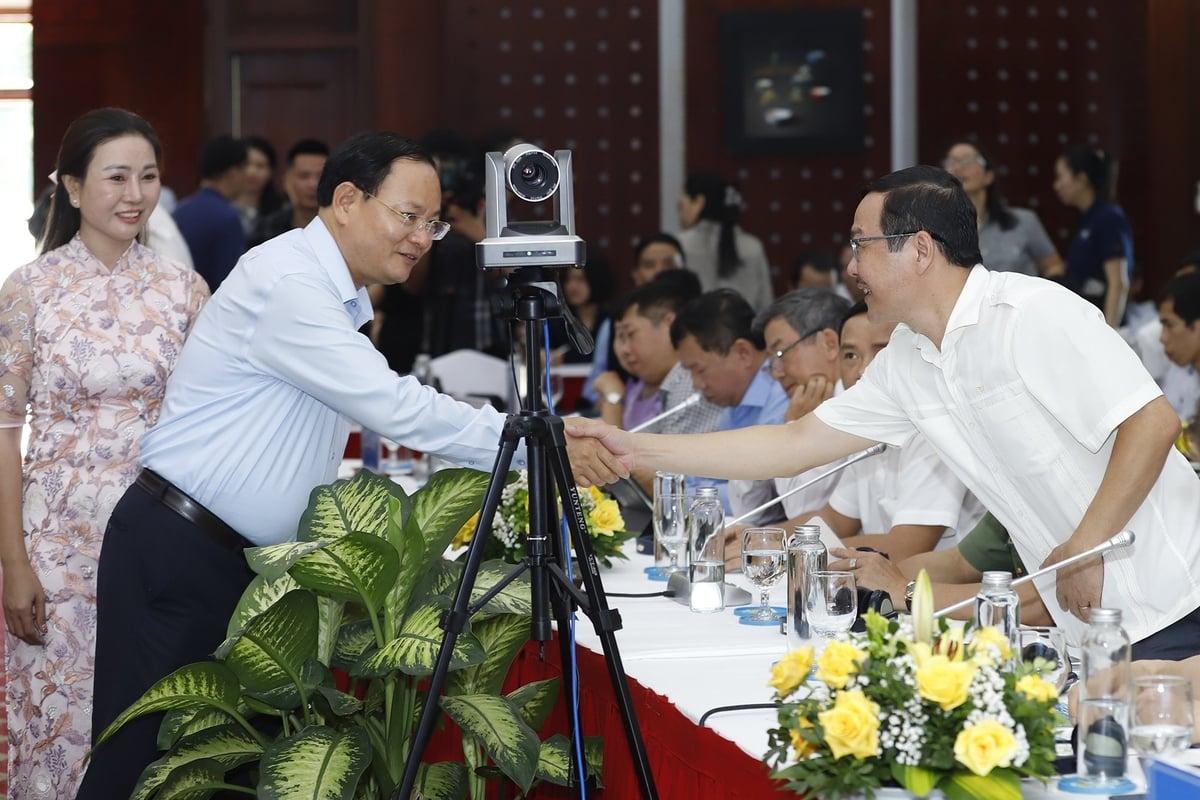December 7, 2025 | 23:55 GMT +7
December 7, 2025 | 23:55 GMT +7
Hotline: 0913.378.918
December 7, 2025 | 23:55 GMT +7
Hotline: 0913.378.918
On the morning of June 6, in Quang Binh, a province rich in revolutionary tradition and now awakening its aspiration to rise from the sea, the workshop titled “Institutions, Planning – Opportunities for Developing a Blue Ocean Economy” took place, chaired by Deputy Minister of Agriculture and Environment Le Minh Ngan.

Workshop “Institutions, planning - Opportunities for developing blue marine economy” chaired by Deputy Minister of Agriculture and Environment Le Minh Ngan. Photo: Tung Dinh.
Representatives from ministries, coastal localities, businesses, domestic and international experts, and global organizations such as UNDP, the World Bank, and GIZ participated in the event, which was one of the main activities of the Vietnam Sea and Island Week 2025.
The Deputy Minister of Agriculture and Environment Le Minh Ngan underscored in his opening remarks at the workshop that "this is not only an opportunity to share experiences, but also a starting point for concrete actions to transform strategic directions for the development of a blue marine economy into reality".
Deputy Minister Le Minh Ngan has stated that the Party and State have recognized the development of the ocean economy as a primary strategy for achieving sustainable national development. From Resolution No. 36 on the sustainable development of Vietnam's ocean economy to more recent concrete policies, a comprehensive picture is progressively forming, presenting unprecedented opportunities.
The year 2025 is considered a pivotal moment in the ocean economy's institutional and planning reforms. It is essential to note that the Central Committee issued Resolution No. 60, which laid the groundwork for the reorganization of provincial administrative entities under a two-tier local government system. This initiative aims to facilitate regional linkages among coastal areas.

Deputy Minister Le Minh Ngan delivered the opening speech at the Workshop “Institutions and planning - Opportunities for developing a blue ocean economy”. Photo: Tung Dinh.
Simultaneously, the Politburo implemented Resolutions No. 57, 59, 66, and 68, collectively known as the "four strategic pillars," to advance the development of the private sector, international integration, science and technology, and legal reform.
"These are essential levers for transforming the marine economy into a contemporary, environmentally friendly model that can adapt to climate change," emphasized Deputy Minister Le Minh Ngan.
The Government's issuance of Decree No. 65/2025/ND-CP, the first legal document to eliminate institutional barriers to marine spatial expansion, particularly in the field of offshore wind power, is a particularly noteworthy development. "This decree not only establishes a foundation for the integrated development of other sectors, including fisheries, logistics, and marine tourism, but also pave the way for renewable energy at sea," the Deputy Minister observed.
Planning, particularly the National Marine Spatial Plan, is a crucial factor in the development of Vietnam's blue marine economy, alongside institutional reforms. Consequently, the implementation must be in close alignment with the central government's major orientations and assure inter-regional and inter-sectoral connectivity. To foster synergistic development, it is crucial to effectively integrate sectoral plans, including those for energy, fisheries, and port infrastructure.

Delegates attending the Workshop “Institutions, planning - Opportunities for developing blue ocean economy”. Photo: Tung Dinh.
Deputy Minister Le Minh Ngan emphasized the necessity for coastal localities to take the lead in formulating long-term visions, proposing innovative solutions, and strengthening institutional capacity. To convert institutional and planning opportunities into tangible development resources, it is essential to establish a comprehensive and coordinated foundation at the local level.
The Deputy Minister anticipates that this workshop will provide clarification on several critical issues. One of the most significant is the identification of new developments in institutions, planning, and policies that are relevant to the marine space. This includes the opportunities and challenges associated with the development of offshore wind power under Decree 65.
The "golden key" to assisting Vietnam in closing the gap with countries that have advanced marine economies was the analysis of international lessons in the application of science, technology, and digital transformation to marine economic development, which was also a focus of the delegates.
Another significant subject of interest was the influence of provincial-level administrative mergers on marine governance models, which was a topic of discussion regarding solutions to ensure sustainable development and effective management. Additional concerns included enhancing value chains through the implementation of integrated fisheries planning, marine ecosystem protection, and biodiversity conservation.
The significance of multi-stakeholder, cross-sectoral cooperation among central and local authorities, the private sector, and international organizations was particularly underscored, as it was regarded as a critical factor in the development of a contemporary, climate-resilient blue marine economy.
The workshop in Quang Binh was a significant opening activity in a series of events celebrating Vietnam Sea and Island Week 2025, which took place at the national launch ceremony at Ho Chi Minh Square in Dong Hoi City the following evening.

Vietnam Sea and Islands Week 2025 continues with many diverse activities, aiming to raise public awareness and promote initiatives for sustainable ocean economic development. Photo: Khuong Trung.
“We hope that this forum will go beyond discussion, translating ideas into concrete initiatives, projects, and actionable policies. Only through specific action can we ensure the genuine and inclusive development of a blue marine economy,” Deputy Minister Le Minh Ngan emphasized.
It is anticipated that the workshop will help establish new momentum for the implementation of Vietnam's Sustainable Marine Economic Development Strategy, positioning the sea as a central resource in the country's development journey, with strong engagement from all stakeholders.
Vietnam Sea and Island Week 2025 continues with a diverse array of activities that are designed to increase public awareness and encourage the implementation of sustainable marine economic development initiatives.
Translated by Linh Linh

(VAN) At the TARASA25 Conference, participating countries shared experiences on implementing agroecology and regenerative agriculture, contributing to a sustainable transformation of food and agriculture systems.

(VAN) Green industry is becoming a driving force for the development of Hue City, not only promoting economic growth but also protecting the environment, creating the foundation for the Net Zero goal.

(VAN) As of 2025, the ASEAN region has a total of 69 ASEAN Heritage Parks recognized across its 10 member states. Among them, Viet Nam contributes 15 ASEAN Heritage Parks.

(VAN) Yok Don National Park has high biodiversity with numerous endemic plant and animal species, and it is also the only dipterocarp forest ecosystem conservation area in Viet Nam.

(VAN) Viet Nam and Brunei signed two important MOUs on fisheries and IUU, expanding cooperation in agriculture, the environment, and Halal exports, aiming to substantively implement joint projects.

(VAN) The Viet Nam Coconut Association worked with the International Finance Corporation (IFC) and businesses to promote the supply chain, enhance competitiveness, and develop the coconut industry sustainably.
![Hue aims for Net Zero: [2] Pioneering low-emission tourism](https://t.ex-cdn.com/nongnghiepmoitruong.vn/608w/files/huytd/2025/12/04/0633-dulichzero-4-095634_236-161125.jpg)
(VAN) The ancient capital of Hue has developed Net Zero tourism products and models, aiming to reduce carbon emissions and pioneer the establishment of Viet Nam's green tourism destination.